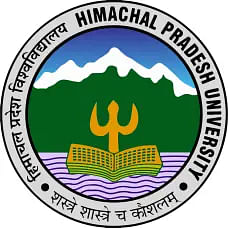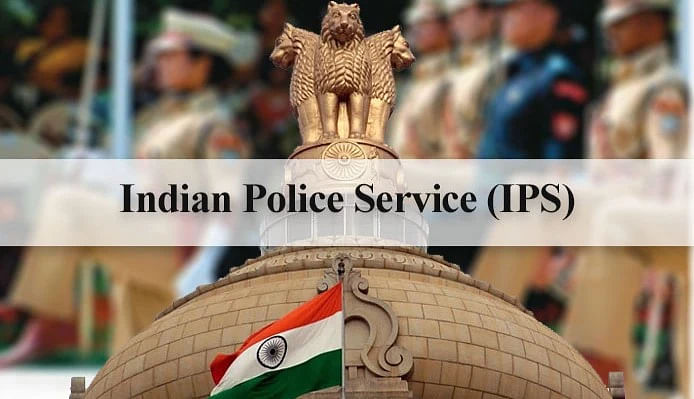A district collector is an administrative personnel appointed by the Union Public Service Commission (UPSC) in every district and it’s sub divisions for the smooth functioning of the district under the State and Central laws.
How to Become a District Collector: A candidate can become a district collector in three stages: pass the UPSC Preliminary (Prelims) or the Civil Services Aptitude Test (CSAT), UPSC Mains and crack the Personal Interview.
A District Collector, also known as the District Magistrate or Deputy Commissioner in various Indian states, is a senior administrative officer responsible for overseeing the general administration of a district.
They manage the law and order, revenue collection, and the implementation of government policies and programs in the appointed district. They play a crucial role in maintaining public welfare, coordinating with various government departments, and addressing administrative and judicial matters within their jurisdiction.
Who is a District Collector?
The District Collector serves as the Chief Administrative Officer (CAO) of a district in India. The individual is appointed to be responsible for overseeing the overall administration of the District.
They hold the top position in the district's revenue administration and are the highest judicial authority within the district.
A district collector is appointed by the Union Public Service Commission (UPSC) or the State Public Service Commission (SPSC) in every district and it’s sub-divisions for the smooth functioning of the district under the State and Central laws.
Also Read: How to Become an IAS Officer?
How to Become a District Collector?
A district collector is appointed by the Central Government and the aspirants must qualify for the Union Civil Services Commission (UPSC) exam conducted by the Central Government. This exam is held once a year. The further steps to become a district collector are as follows.
Step 1: District Collector Educational Requirements
The candidates are required to complete a bachelor’s degree from any recognized university. The aspirants must note that any bachelor’s degree is acceptable, but those who pursue a course in public administration, political science or economics may have a competitive edge. There are no specific postgraduate qualifications required, but advanced degrees may enhance their candidacy and performance.
Step 2: Prepare for the UPSC Exam
The candidates must prepare well and pass the Civil Services Examination conducted by the Union Public Service Commission (UPSC). This includes three stages: Preliminary (Prelims) or the Civil Services Aptitude Test (CSAT), Mains and a Personal Interview.
The Civil Services Preliminary Examination (Prelims) consists of multiple-choice questions (MCQ) which test the general awareness and aptitude of the candidate. The Main Examination (Mains) is more of descriptive papers that assess candidates' in-depth knowledge and analytical abilities. The passed candidates then undergo a personal interview session.
Step 3: Apply for the Examination
The candidates must submit their UPSC application form on time through the official website and ensure to meet all the eligibility criteria. The application forms are available at upsc.gov.in. The candidates should make sure that they are aware of the number of attempts before processing their application.
| Category | Number of Attempts |
| General | 6 attempts till the age of 32 |
| OBC | 9 attempts till the age of 35 |
| SC/ST | Unlimited till the age of 37 years |
Step 4: District Collector Selection and Training
After passing the UPSC exams and personal interviews, the candidates will be selected for the Indian Administrative Service (IAS) program.
The candidates are required to complete the mandatory training at the Lal Bahadur Shastri National Academy of Administration (LBSNAA) in Mussoorie, which includes both theoretical and practical aspects of administration.
Step 5: District Collector Probationary Period
The probationary period for a district collector is for two years. This probationary phase is crucial for evaluating their competency and readiness for the responsibilities of a district collector.
After the training for district collector, the candidates will serve a probationary period in various administrative angles, to gain practical experience and knowledge on serving for the country.
Read More: 25 Best District Collector Interview Questions
District Collector Eligibility Criteria
The aspirants must meet the eligibility for a direct collector position. The candidate can check the list of requirements such as educational qualifications, age limit, citizenship, written examination, and physical examination.
Educational Qualifications - The candidates must have at least a bachelor’s degree from a recognized university. The degree can be in any discipline, though courses in public administration, political science, or economics may be advantageous.
Age Limit - The aspirants can check the age limit based on each category from the table mentioned below.
| Category | Age Limit |
| General | 21 to 32 years |
| OBC | 35 years |
| SC/ST | 37 years |
| Physically Disabled | Additional 10-year relaxation, depending on their category. |
Citizenship - The aspirants must be a citizen of India. In some cases, candidates from Nepal, Bhutan, or Tibetan refugees who came to India before January 1, 1962, may also be eligible, but this is less common.
UPSC Civil Services Examination - The candidates must pass the Civil Services Examination conducted by the Union Public Service Commission (UPSC), which includes Preliminary and Main Examinations followed by a Personal Interview.
Physical and Medical Standards - The standard routine physical and medical tests are taken for any candidate who is trying to get into an administrative role. The pointers below are a general mandatory requirement for becoming a district collector.
- Health Requirements: The candidates must meet the physical and medical standards set by the UPSC.
- Training: After passing the UPSC exams, the selected candidates will undergo training at the Lal Bahadur Shastri National Academy of Administration (LBSNAA) before being appointed to various administrative positions, including District Collector.
- Experience: The candidates are required to have some administrative experience in various roles for a progressive career.
Read More: UPSC Eligibility Criteria
Education Qualifications of a District Collector
The educational qualifications for district collector is any bachelor's degree program, the table mentioned below will have a list of courses that an aspirant can pursue without feeling the academic pressure along with the UPSC exam preparation.
| Parameters | BA | B. Sc. | B.Com. |
| Duration | 3 Years | 3 Years | 3 Years |
| Eligibility Criteria | Class 12 from any recognised board | Class 12 from any recognised board | Class 12 from any recognised board |
| Top Colleges | BHU, DU, JMI | DU, JNU, Allahabad University | Delhi School of Economics, Shri Ram College of Commerce |
| Entrance Exams | CUET | CUET | CUET |
| Average Course Fees (INR) | 30,000 PA | 32,000 PA | 41,000 PA |
Also Read: UPSC Previous Year Question Papers
Roles and Responsibilities of District Collector
The district collector duties and responsibilities are listed below for the aspirants to know what they are getting themselves into while taking up an administrative position with the State government.
- Oversee the general administration and ensure the maintenance of law and order in the district.
- Implement government policies and programs, and coordinate with police, law enforcement, government departments and agencies effectively.
- Handle crises and emergencies, such as natural disasters and public disturbances.
- Supervise the collection of land revenue and other district revenues.
- Oversee land records and ensure accurate land revenue assessments.
- Implement and monitor public welfare schemes and programs, address public grievances and ensure timely resolution of issues.
- Facilitate and oversee developmental projects and initiatives, and ensure effective execution of infrastructure and community development programs.
- Ensure compliance with the law during elections, including local, state, and national elections.
- Coordinate disaster preparedness and response efforts, and manage relief operations to recovery processes during and after disasters.
District Collector Salary and Benefits
The salary of a District Collector or an IAS officer is INR 94,000 to INR 1.72 lakh per month. A district collector is also entitled to other benefits such as the House Rent Allowance (HRA), Security bills, Vacations, Dearness Allowance, Travel Allowance, Pension, and Medical Allowance.
| Pay Level | No. of years of service | Basic Pay (INR) |
| 10 | 1-4 | 56100 |
| 11 | 5-8 | 67,700 |
| 12 | 9-12 | 78,800 |
| 13 | 13-16 | 1.18 lakh |
| 14 | 16-24 | 1.44 lakh |
| 15 | 25-30 | 1.82 lakh |
| 16 | 30-33 | 2.05 lakh |
| 17 | 34-36 | 2.25 lakh |
| 18 | 37+ years | 2.5 lakh |
Read More: UPSC IAS Salary and Benefits 2024
District Collector Ranks and Positions
The District Collector or District Magistrate, is a senior administrative officer in charge of managing a district within a state. The role includes a wide range of responsibilities, including revenue collection, law and order maintenance, and implementation of government policies. The table mentioned below has a list of district collector ranks and power at the district level, state level, and central level.
| District Level | State Level | Central Level |
| District Administration | State Secretariat | Central Secretariat |
| Sub-Divisional Magistrate | Undersecretary | Assistant Secretary |
| Additional District Magistrate | Deputy Secretary | Undersecretary |
| District Magistrate | Joint Secretary | Deputy Secretary |
| District Magistrate | Special Secretary-cum-Director | Director |
| Divisional Commissioner | Secretary-cum-Commissioner | Joint Secretary |
| Divisional Commissioner | Principal Secretary | Additional Secretary |
| No Equivalent Rank | Additional Chief Secretary | No Equivalent Rank |
| No Equivalent Rank | Chief Secretary | Secretary |
| No Equivalent Rank | No Equivalent Rank | Cabinet Secretary of India |
District Collector Exam Preparation
The aspirants can check the district collector exam preparation tips given below for the preparing candidates to ace the UPSC examination on their first try.
- Check the UPSC exam pattern and UPSC syllabus, to develop a detailed study schedule with time allocated for each subject.
- Use standard textbooks, reference materials, and current affairs resources either prescribed by the institution or fellow UPSC aspirants or candidates who cracked the exam.
- Review the UPSC previous years' question papers and sample tests for practice.
- Concentrate on general studies subjects such as policy, geography, history, and economics.
- Stay updated with national and international news by reading newspapers and relevant magazines to stay informed about recent developments.
- Solve mock tests and practice papers to improve speed and accuracy.
- Regularly revise key topics and create summary notes for quick review.
- Develop problem-solving and analytical skills through practice questions and case studies.
- Join study groups or coaching classes for structured learning and support.
- Maintain a balanced diet, regular exercise, and adequate sleep to support effective studying.
Read More: UPSC Reference Books










